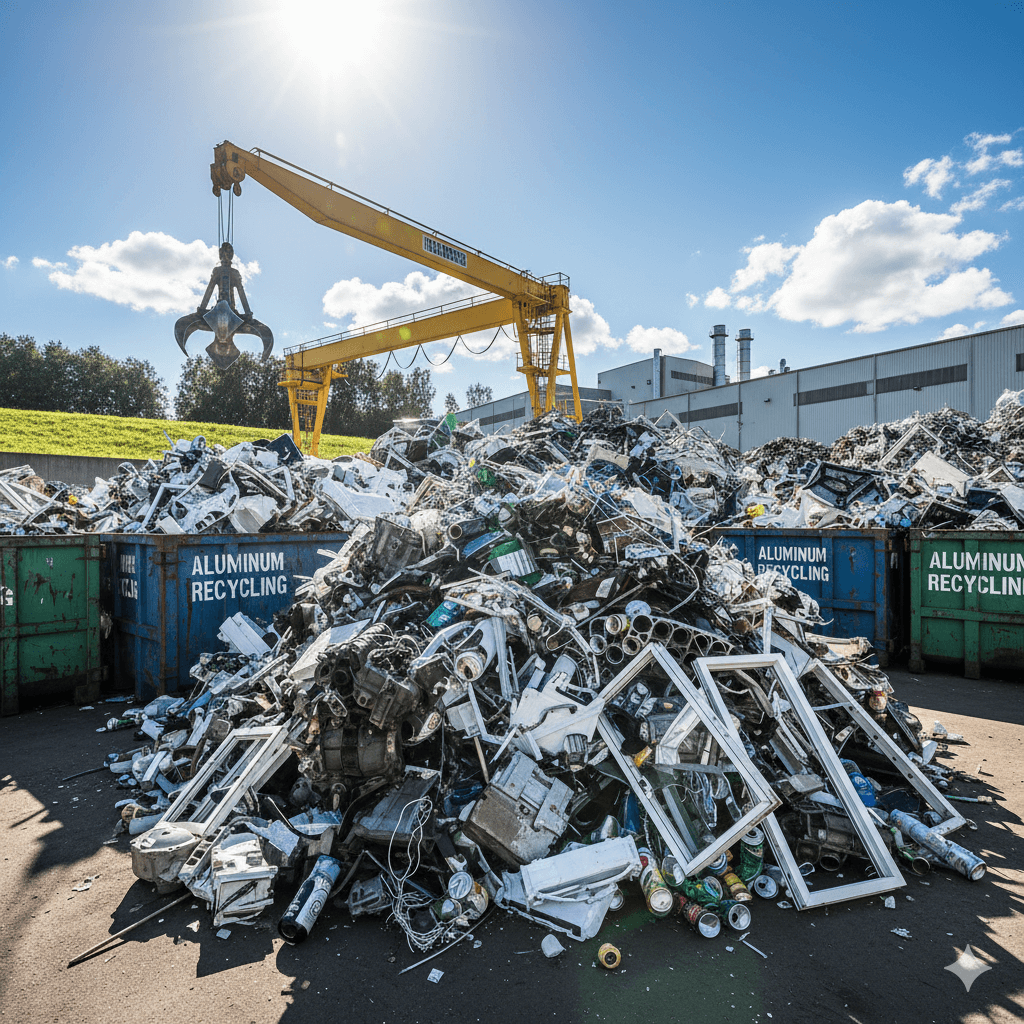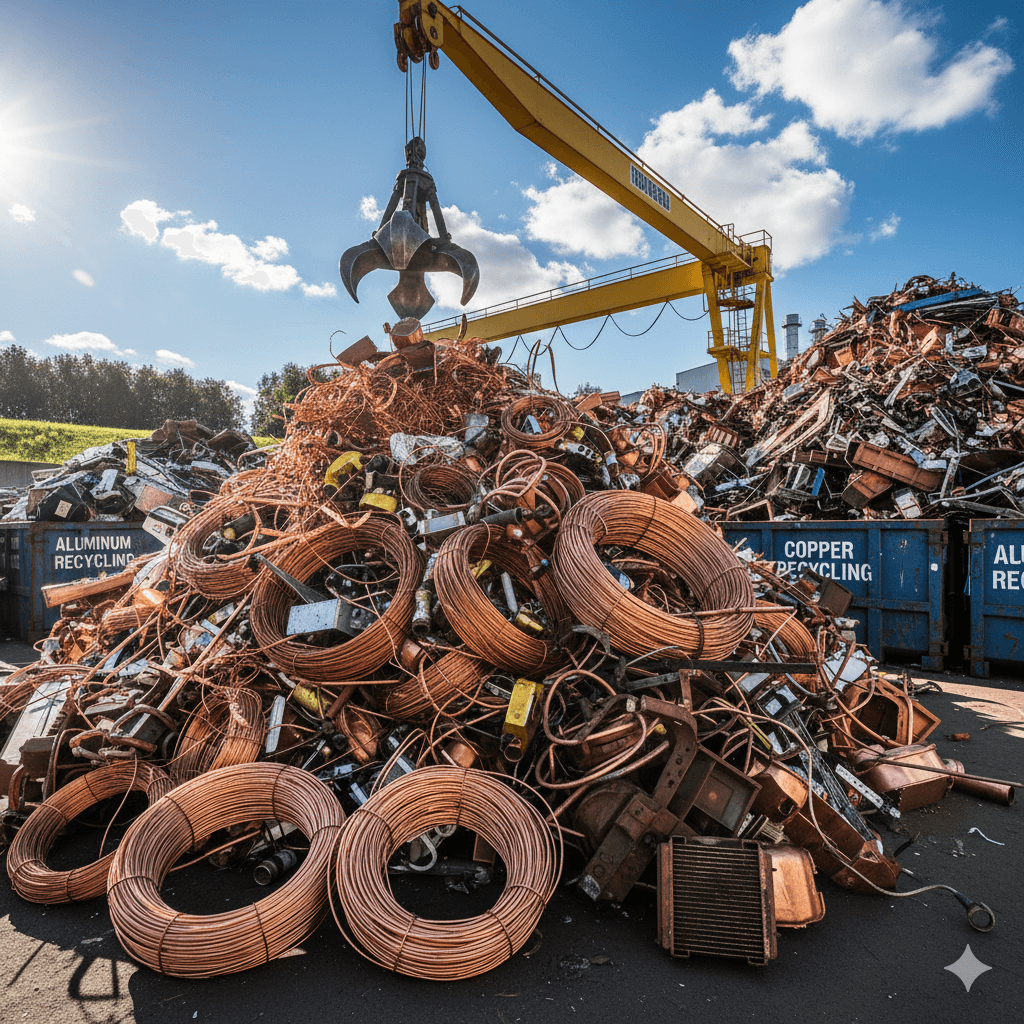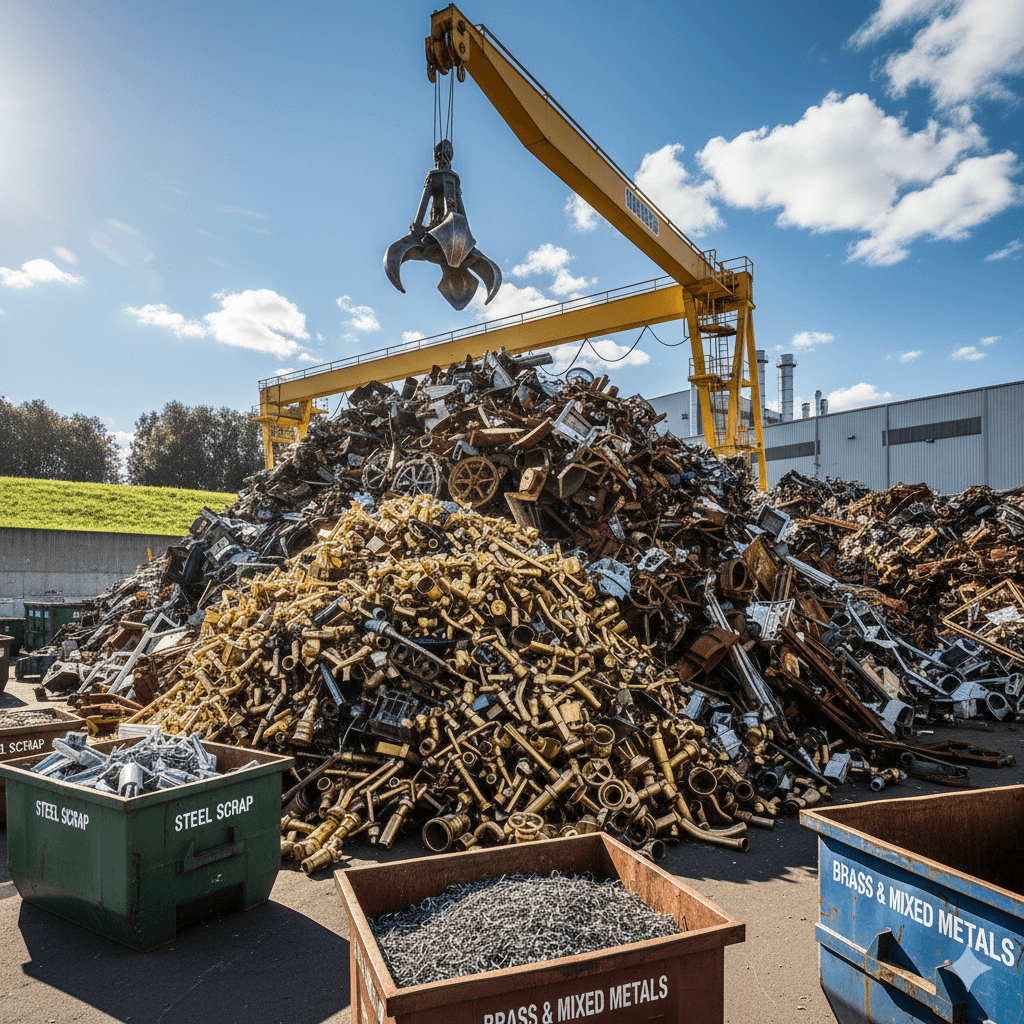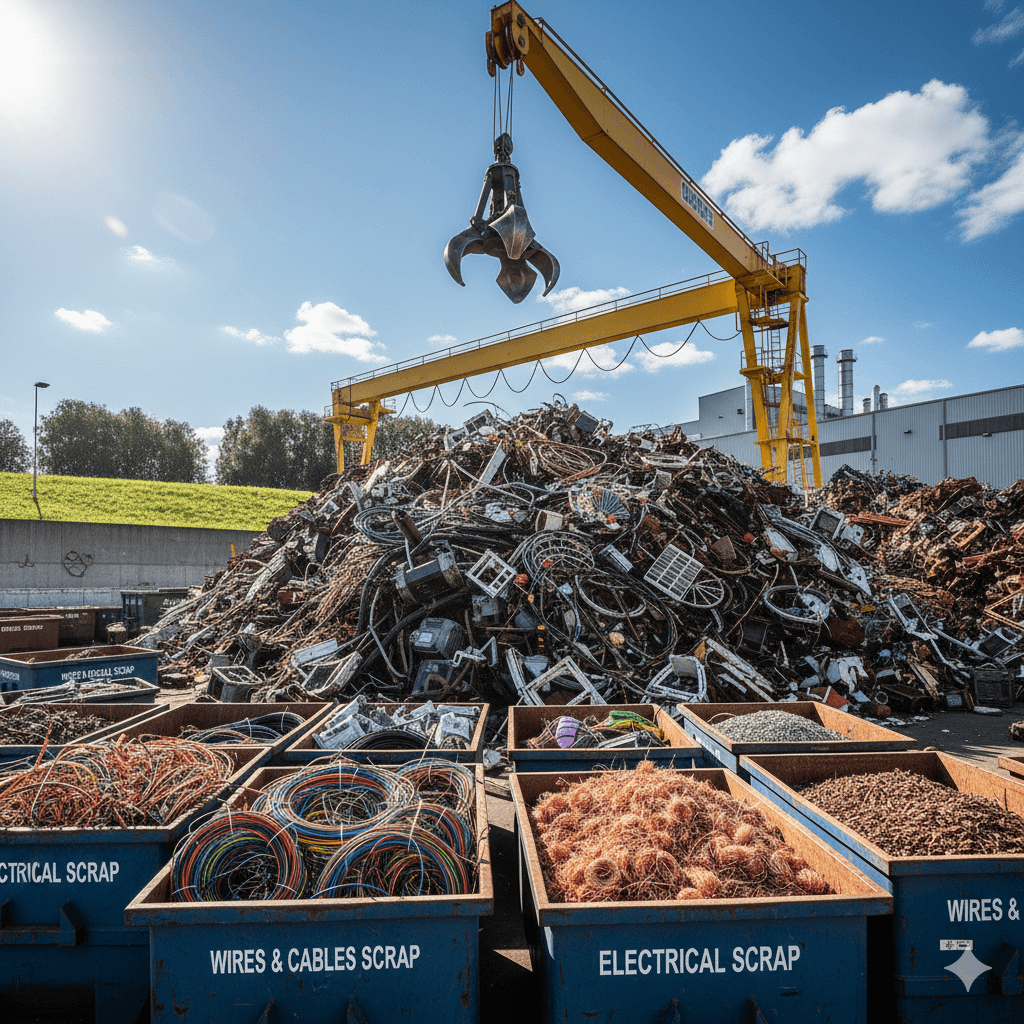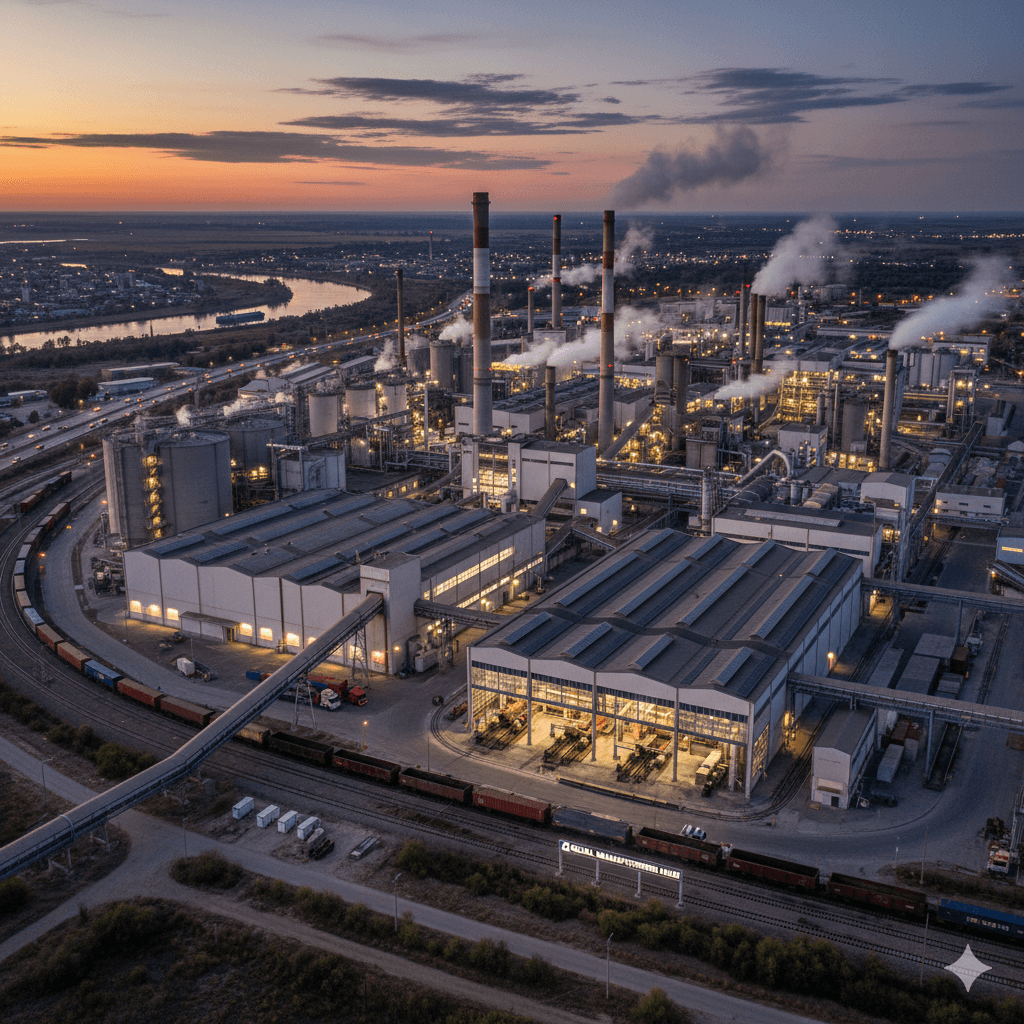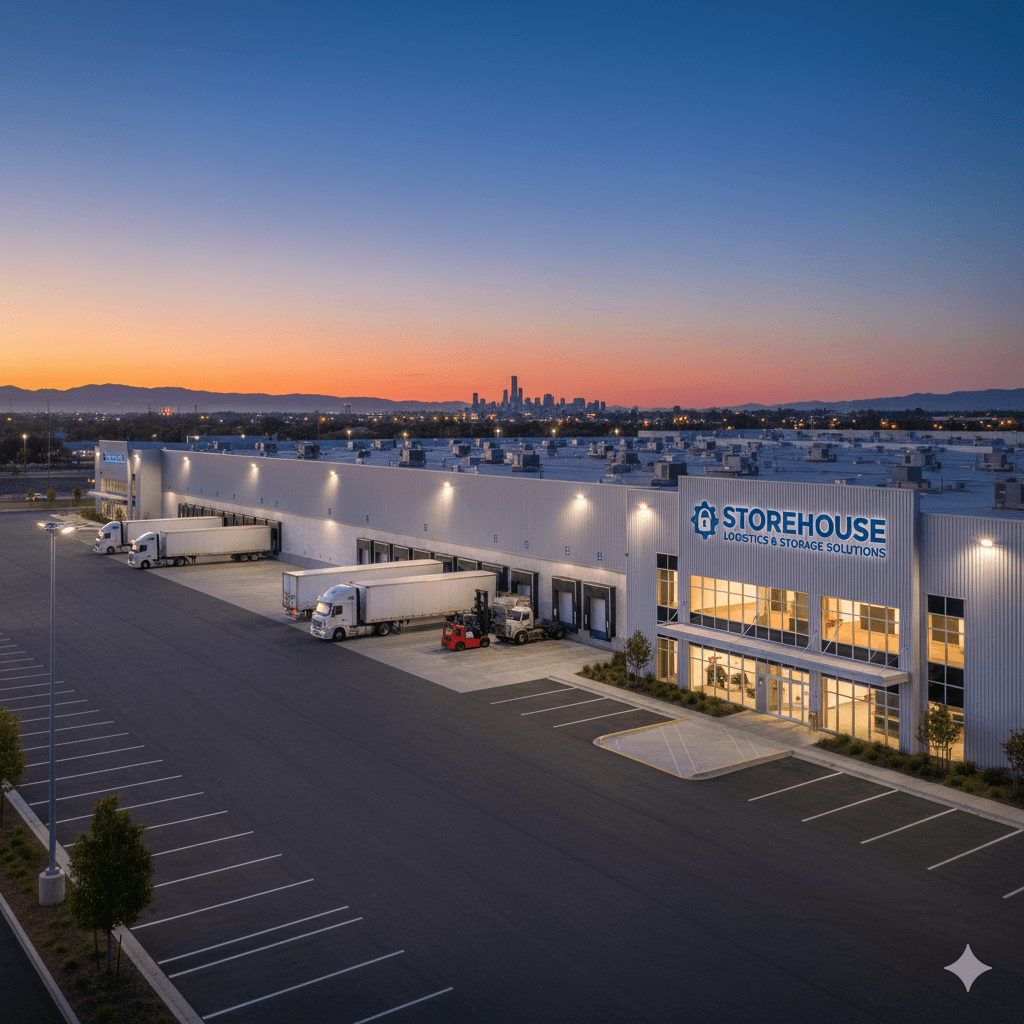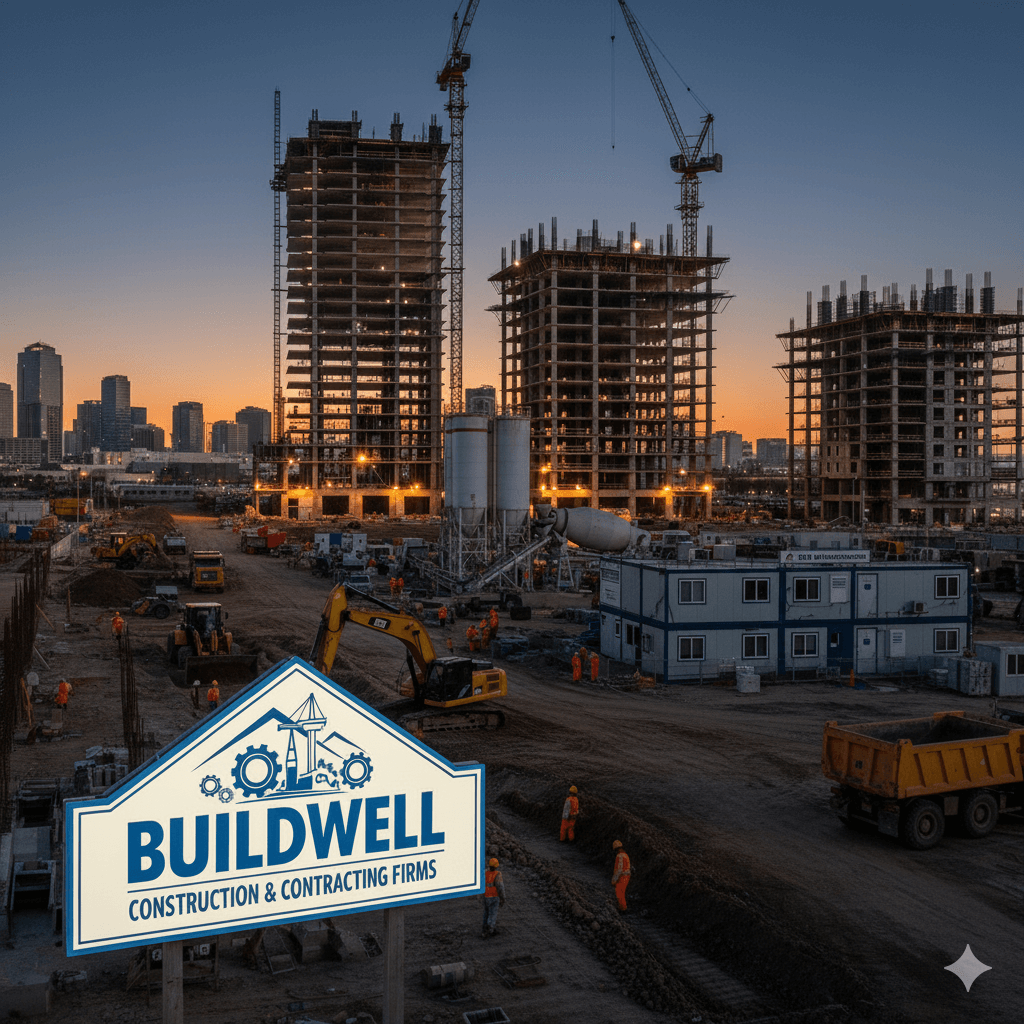Have you ever stood in front of a rusty pile of pipes, a stack of broken-down appliances, or maybe even an abandoned car that’s been sitting idle for months and thought, “Well, that’s just garbage—no use at all”? I know I have. It’s easy to look at those objects and see only clutter, a problem to be cleared away. But here’s the twist—what looks like a liability could actually be an untapped business opportunity, especially in a place like the United Arab Emirates.
The UAE is known for its futuristic skyline, where glass towers glimmer in the sun and construction cranes are practically part of the landscape. Growth here doesn’t pause—it evolves. But with rapid development comes an unavoidable byproduct: waste. The good news? Not all waste is created equal. Much of it, especially scrap, carries hidden value that many businesses overlook.
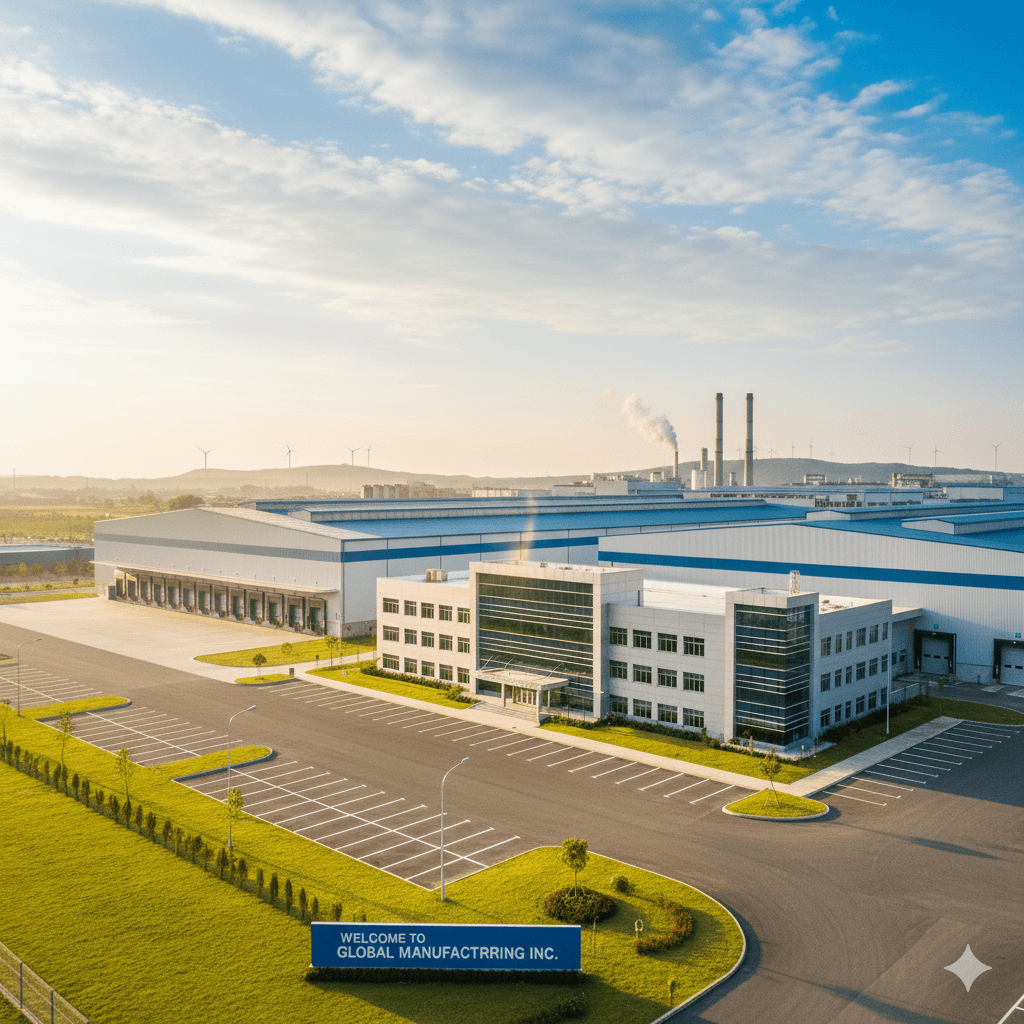
Scrap isn’t just “junk.” In today’s global economy, it’s an asset class in its own right. The copper in old wiring, the steel beams left over from a construction project, the aluminum from dismantled equipment—all of these materials are in high demand for recycling and reuse. And in the UAE, where sustainability goals are shaping the future of industries, businesses that once ignored scrap are now realizing it can boost their bottom line, strengthen their green credentials, and even open new revenue streams.
This is where scrap buyers come in. They’re the professionals who connect the dots between what you see as clutter and what the market sees as valuable raw material. They act as the bridge that transforms unwanted waste into something tangible—cash flow, sustainability points, or even long-term partnerships that align with government green initiatives.
Think about it:
In short, scrap isn’t a burden—it’s a business resource waiting to be tapped.
And here’s the bigger picture: in a country like the UAE, where waste management and sustainability are now at the forefront of government agendas, how you handle your scrap says a lot about your business. Are you simply discarding materials and missing out on value, or are you smartly turning waste into opportunity? In this article, we’ll dive deep into why scrap management has become a game-changing strategy for businesses across the Emirates. We’ll explore the industries that benefit most, the financial and environmental rewards of selling scrap, and how to choose the right buyer to maximize value. By the time we’re done, you might never look at a pile of “junk” the same way again.
Scrap Isn’t Trash: Why It Matters Today
Let’s be real—every business, no matter how efficient, produces some form of waste. Cars eventually break down, machines wear out, and construction projects almost always leave behind piles of leftover material. For decades, this was treated as exactly that—waste. Something to haul away, pay someone to dump, and then forget about. But here’s the reality: in today’s circular economy, scrap is no longer “just garbage”. It’s a resource. It’s a raw material. It’s money waiting to be unlocked. And in countries like the UAE, where sustainability is more than a buzzword and is now woven into national policy, scrap is becoming a strategic business asset.
So, what exactly makes scrap so valuable today? Let’s break it down:
And here’s the kicker: instead of spending money to dispose of all this material, businesses can actually earn money by selling it to licensed scrap buyers. That’s a double win—reducing waste management costs on one hand, while generating new income on the other.
Quick Case Study: A Construction Firm in Dubai
One mid-sized construction company in Dubai recently completed a residential tower project. Traditionally, they would have paid for waste collection to haul away leftover steel rods, aluminum frames, and copper wiring. Instead, they partnered with a licensed scrap buyer.
Here’s what happened:
- They earned AED 120,000 from selling recovered metals.They saved 20% on landfill disposal costs.
- They gained LEED certification points, which helped market the building as a green development.
What looked like “waste” actually turned into three wins: profit, savings, and a stronger brand image.
UAE’s Bold Sustainability Vision
To really understand the power of scrap in the UAE, you need to zoom out and look at the bigger picture. This isn’t just about recycling a few pieces of metal or getting rid of old equipment—it’s about how an entire nation is rethinking waste, energy, and the future.
The UAE isn’t only building towers, highways, and record-breaking projects. It’s also building a long-term strategy for sustainability, one that ensures resources are used wisely and waste is reduced wherever possible. At the heart of this strategy are national commitments like UAE Vision 2030 and the Net Zero by 2050 Strategic Initiative. These aren’t just slogans—they are blueprints guiding how industries, cities, and even households manage their resources.
Here are a few highlights that directly connect to scrap management:
- Dubai Integrated Waste Management Master Plan 2041: This ambitious plan aims to reduce landfill waste by 75% within the next two decades. Part of the strategy involves recycling scrap materials, investing in waste-to-energy plants, and encouraging private companies to adopt greener disposal methods. For businesses, this means there will be increasing pressure—and opportunities—to recycle responsibly rather than dump.
- Abu Dhabi’s Waste Management Center (Tadweer): Tadweer has already positioned itself as one of the region’s most advanced recycling and waste management hubs. From handling construction debris to recycling old vehicles and hazardous waste, Tadweer sets a standard for how the UAE wants industries to approach waste. Companies that work with licensed buyers and centers like Tadweer not only stay compliant but also gain credibility.
- Expo 2020 Dubai’s sustainability legacy: Remember how Expo 2020 was marketed as one of the most sustainable expos in history? That wasn’t just PR—it left a legacy. Buildings from the Expo were designed for reuse, recycling rates were pushed to impressive levels, and businesses across the UAE took inspiration. Since then, more companies are expected to show their commitment to green practices, including recycling scrap.
And here’s the kicker: instead of spending money to dispose of all this material, businesses can actually earn money by selling it to licensed scrap buyers. That’s a double win—reducing waste management costs on one hand, while generating new income on the other.
So, what does all this mean if you’re a business owner in the UAE?
It means that scrap management is no longer just a “good idea.” It’s becoming an expectation and, in some cases, a requirement. Companies that fail to show eco-friendly practices risk being left behind—not just in reputation but also in real opportunities. More government contracts, for example, now require proof of sustainability practices. On the flip side, companies that embrace recycling and partner with responsible scrap buyers enjoy multiple benefits:
- A stronger brand reputation with eco-conscious customers and partners.
- A competitive advantage in tenders and government projects.
- Financial rewards, from cost savings to potential tax or compliance incentives.
Think of it this way: sustainability in the UAE isn’t just about protecting the environment—it’s about positioning your business for the future. Scrap management might seem like a small part of the puzzle, but it’s one of those “behind-the-scenes” practices that can make your business stand out in a competitive market.
Who Benefits the Most From Scrap Buyers in the UAE?
Scrap buyers aren’t just for junkyards tucked away on the outskirts of town. They’re vital players in the UAE’s business ecosystem, quietly helping entire industries stay efficient, sustainable, and profitable. Let’s start with one of the most obvious sectors: automotive.
Automotive Sector
If there’s one thing the UAE is known for (other than skyscrapers and luxury hotels), it’s cars. From fleets of shiny new imports on Sheikh Zayed Road to workhorses powering logistics and construction, the country has one of the highest car ownership rates in the world. But where there are cars, there are also breakdowns, accidents, and a steady stream of parts that simply wear out.
For garages, dealerships, and auto repair shops, this means one thing: scrap piles up fast. And we’re not just talking about the occasional bumper or tire—entire vehicles often reach end-of-life, leaving behind tons of materials that need proper handling.
Here’s where scrap buyers step in.
- Batteries: Instead of being dumped (which is hazardous), batteries are collected and recycled for valuable lead and acid components.
- Engines and transmissions: Once beyond repair, they’re stripped down and harvested for metals like aluminum and steel.
- Plastics and glass: These materials, often overlooked, can be reprocessed into new auto components or even construction products.
The benefits go far beyond just “getting rid of junk.” For automotive businesses, working with a licensed scrap buyer means:
- Space savings: A cluttered garage or yard is wasted real estate. Scrap buyers clear it out, freeing space for new inventory or operations.
- Environmental responsibility: Proper disposal reduces the risk of harmful leaks (like battery acid or oil), which can damage land and water.
- Extra income: What once cost money to dispose of now becomes a new revenue stream.
Example:
A mid-sized auto garage in Dubai used to pay for waste collection services to haul away damaged parts. After partnering with a licensed scrap buyer, they not only eliminated that cost but also started generating an additional AED 20,000 per month in scrap sales. On top of that, they used their recycling efforts as part of their marketing, proudly branding themselves as an “eco-conscious service center.” Customers noticed—and so did new business partners.
And here’s something most people don’t consider: the UAE government has strict rules around end-of-life vehicles. Unlicensed disposal can lead to fines or even business shutdowns. Partnering with a scrap buyer ensures compliance, which is crucial for workshops that want to stay on the right side of the law.
The UAE’s love affair with cars isn’t slowing down anytime soon, which means the automotive sector will continue to be one of the biggest beneficiaries of scrap recycling. What looks like a junked SUV in the lot today could actually be a tidy profit tomorrow.
Construction & Real Estate
If you’ve ever driven past Dubai Marina, Business Bay, or the ever-growing neighborhoods of Abu Dhabi, you know that construction isn’t just a trend here—it’s part of daily life. Tower cranes are as much a part of the skyline as the Burj Khalifa itself. But with all this development comes a natural byproduct: scrap material.
From skyscrapers to villa communities, construction projects generate mountains of leftovers—steel beams cut too short, aluminum window frames that didn’t fit, copper wiring trimmed during installations, and even broken tiles and concrete. Multiply this across hundreds of projects, and you’re looking at millions of tons of potential scrap material every year in the UAE. Now, here’s where scrap buyers make a massive difference.
They help developers and contractors:
- Reduce project costs: Instead of paying disposal fees, construction companies sell unused materials to scrap buyers, cutting overall expenses.
- Unlock hidden income: A steel beam lying around the site may seem like waste, but to a scrap buyer, it’s valuable inventory. That’s money back in the developer’s pocket.
- Strengthen sustainability credentials: With more real estate investors asking about green certifications (like LEED and Estidama in Abu Dhabi), recycling scrap can directly contribute to meeting those benchmarks.
Case in Point:
A mid-size construction firm in Sharjah recently wrapped up a large residential project. Instead of sending leftover steel rods and aluminum panels to a landfill, they partnered with a local scrap buyer. By reselling the materials:
- They recovered AED 500,000 worth of value from scrap that would’ve otherwise been discarded.
- They reduced waste disposal costs by 30%, thanks to fewer trips to the landfill.
- They gained extra points in their sustainability reporting, which helped them secure a new government project.
One of the executives even admitted that what started as a cost-saving decision turned into a powerful marketing angle. By promoting the fact that their projects were built with sustainable practices—including scrap recycling—they attracted more environmentally conscious investors. And it’s not just about cost or image—there’s also compliance. The UAE has strict construction waste regulations. Partnering with licensed scrap buyers helps companies stay within the law, avoiding fines and maintaining smooth project approvals.
In a country where mega-projects like Expo City, Masdar City, and countless smart communities are shaping the future, construction companies that embrace scrap recycling aren’t just managing waste—they’re positioning themselves as leaders in green development. Because here’s the truth: every steel rod, copper wire, or aluminum panel left behind has value. The only question is—are you throwing that value away, or cashing it in?
Manufacturing & Industrial Plants
Factories are like engines—they don’t just churn out products, they also generate a steady flow of byproducts. Think about it: every sheet of steel cut into parts leaves off-cuts behind, every mold produces rejects that don’t meet quality standards, and every machine eventually wears down, leaving behind parts that need replacing. For manufacturers in the UAE, this isn’t just “waste”—it’s untapped value.
In fact, for large-scale manufacturers, scrap becomes a predictable revenue stream, almost like a side business that runs itself. Instead of paying for disposal, they actually get paid for materials that are no longer useful in production.
Common Types of Manufacturing Scrap:
- Metal off-cuts: Steel, aluminum, and copper scraps from machinery and product lines.
- Defective or rejected parts: Items that don’t pass quality checks can be melted and reused.
- Plastic waste: Excess or damaged molds can be reprocessed.
- Old machinery: Worn-out equipment isn’t worthless—it’s full of valuable metals.
Why Scrap Recycling Is Crucial for UAE Manufacturers
- Financial Stability:
Unlike construction, where scrap is project-based, manufacturing scrap is consistent. Every month, a factory knows it will have a certain volume of waste. This makes scrap sales almost like a predictable “subscription” income. Some large factories in Abu Dhabi’s industrial zones report scrap sales worth hundreds of thousands of dirhams annually. - Compliance with Sustainability Goals:
With the Dubai Industrial Strategy 2030 and Abu Dhabi Industrial Strategy 2031, the UAE is actively pushing for smarter, greener manufacturing. Companies that can prove recycling and sustainable practices are more likely to attract foreign investment and government incentives. Scrap buyers help tick that compliance box. - Operational Efficiency:
A cluttered plant is inefficient. Scrap buyers provide regular pickups, keeping floors clear and production flowing smoothly.
Case Example:
The steel fabrication plant in Jebel Ali Free Zone used to stockpile scrap until disposal became overwhelming. After signing a long-term contract with a licensed scrap buyer, they not only cleared space but also secured a predictable income of around AED 1 million annually from scrap sales. They now use that revenue to offset maintenance costs for their machinery—essentially making waste fund productivity.
- Reputation Boost
With international clients demanding higher ESG (Environmental, Social, and Governance) standards, UAE manufacturers that recycle scrap have an advantage in winning contracts. For example, an industrial supplier in Sharjah reported that their recycling practices helped them secure a major European client who specifically required proof of sustainable operations.
In short, for UAE manufacturers, scrap isn’t just a byproduct—it’s an asset with financial, operational, and reputational value. When managed strategically, it turns what once looked like a liability into a steady side business.
Government & Municipal Projects
When governments build, expand, or renovate, they do it on a massive scale. In the UAE, this means highways stretching across the desert, new metro lines weaving through Dubai, entire districts being redeveloped, and old infrastructure making way for smart cities. But here’s the question: what happens to the mountains of materials left behind during these projects?
Think about it—when a road gets expanded, tons of asphalt, concrete, and steel are dug up. When an old bridge or building is demolished, there are huge piles of metal, wiring, pipes, and broken concrete. If all of that went straight to landfills, not only would it take up valuable space, but it would also clash directly with the UAE’s sustainability and circular economy targets. That’s where licensed scrap buyers come in. Instead of ending up in landfills, much of this material is collected, sorted, and redirected back into the economy through recycling. Scrap buyers ensure:
- Compliance with national goals like the Dubai Integrated Waste Management Master Plan 2041 and Net Zero by 2050.
- Taxpayer savings, since recycling materials reduces the cost of raw imports for new projects.
Efficient waste handling, preventing illegal dumping or environmental hazards.
Real-World Examples in the UAE
- Dubai Metro expansions: Every new line involves re-routing cables, dismantling old structures, and removing excess metal and concrete. Scrap buyers handle these materials, ensuring they’re recycled instead of wasted.
- Road upgrades across Abu Dhabi and Sharjah: When old asphalt and steel reinforcements are stripped out, they’re sent to certified recycling centers rather than landfills. Some of this material is even reprocessed for use in new roadbeds.
Expo 2020 Dubai transformation into Expo City: Instead of demolishing and discarding, materials were carefully recycled or repurposed, setting a benchmark for future government projects. Scrap buyers were a key part of that ecosystem.
Case Example:
During a municipal demolition project in Abu Dhabi, over 70% of construction and demolition waste was successfully recycled through partnerships with scrap buyers and Tadweer (the Center of Waste Management). This not only met government sustainability requirements but also saved millions of dirhams in landfill costs.
Why It Matters for the Public
At the end of the day, government and municipal projects are funded by taxpayer money. When scrap is recycled instead of wasted, those savings ultimately benefit the public—funding new schools, hospitals, and services instead of being lost to disposal costs.
And let’s not forget compliance: with increasing global scrutiny on climate commitments, the UAE’s government projects need to showcase leadership in sustainability. Working with scrap buyers ensures that every road expansion, bridge upgrade, or building demolition contributes to the country’s green reputation on the world stage
What Makes a Trustworthy Scrap Buyer in the UAE?
Let’s be real: not all scrap buyers are created equal. Some will offer quick cash and disappear the next day, while others build lasting partnerships that help businesses cut costs, stay compliant, and even improve their reputation. In the UAE—where regulations are tight and sustainability is front and centre—choosing the right buyer isn’t just a nice-to-have; it’s essential. So, how do you know if you’re working with a trustworthy scrap buyer? Here’s a breakdown of what to look for:
Why This Matters for UAE Businesses
At the end of the day, the right scrap buyer isn’t just someone who takes junk off your hands. They’re a business partner who can:
- Boost your bottom line with fair payments.
- Keep you legally compliant and audit-ready.
- Strengthen your sustainability profile in a market where green practices are increasingly demanded.
Choosing wisely is the difference between turning scrap into a long-term asset versus a short-term liability.
Scrap Buyers and Business Finance
Here’s where things get really interesting: scrap management isn’t just about cleaning up clutter—it’s about strengthening your company’s financial health. In the UAE, where every dirham counts and competition is fierce, the ability to turn “waste” into money can be the hidden edge that keeps your balance sheet in the green. Let’s break down how scrap directly supports business finance:
Why This Matters for UAE Businesses
For CEOs and CFOs, scrap is no longer just an environmental issue—it’s a financial tool. By incorporating recycling revenue into financial planning, businesses in the UAE gain:
- Higher profitability without raising prices.
- Cleaner balance sheets, with reduced overhead and disposal fees.
- Competitive resilience, especially in industries with thin margins.
In short: scrap management is smart money management. What looks like rust and rubble today could be funding tomorrow’s growth.
How Technology Is Changing Scrap Buying in the UAE
Scrap buying isn’t what it used to be. Gone are the days when the process was just about trucks, scales, and manual negotiations. In today’s UAE—home to smart cities, AI-powered industries, and digital-first government services—even scrap management is evolving. Modern scrap buyers are embracing technology to make the process more transparent, efficient, and aligned with the country’s long-term sustainability vision. Here’s how tech is reshaping the industry:
Case Example:
A licensed scrap buyer in Dubai recently rolled out an app that combines real-time price updates with automated invoicing and recycling certificates. A manufacturing client in Jebel Ali used the platform to track its monthly scrap sales and discovered it was recycling 15% more aluminum than expected. That insight allowed the company to adjust production processes and save on raw material purchases.
And here’s the kicker: instead of spending money to dispose of all this material, businesses can actually earn money by selling it to licensed scrap buyers. That’s a double win—reducing waste management costs on one hand, while generating new income on the other.
Why This Matters for UAE Businesses
Technology in scrap buying isn’t just about convenience—it’s about alignment with the UAE’s smart city vision and digital transformation goals. For businesses, it means:
- Faster, more reliable collections.
- Transparent pricing and compliance.
- Stronger sustainability reporting backed by data.
In short, tech-driven scrap buyers are no longer just waste collectors—they’re becoming strategic partners helping companies run smarter, greener, and more efficiently.
How We Collect Your Scrap?
Practical Business Tips for Working With Scrap Buyers
So, you’re ready to turn waste into opportunity—great move. But before you start loading that truck with old cables, broken machinery, or construction leftovers, there are a few strategies that can make your partnership with scrap buyers in the UAE smoother, more profitable, and fully compliant. Here are some insider tips to help you get the most out of your scrap:
1. Sort Materials Early 🧹
Don’t just toss everything into one pile. Scrap buyers pay more when materials are clean and separated. For example, copper wiring stripped of insulation often fetches a much higher price than mixed wires. Likewise, separating aluminum from steel can boost returns.
💡 Pro tip: Some businesses set up dedicated bins on-site (marked for steel, aluminum, copper, plastics, etc.). This not only increases revenue but also saves the buyer time—something they may reward you for with better rates.
2. Stay Updated on Market Prices 📈
Metal prices aren’t static—they fluctuate daily depending on global commodity markets. A kilo of copper today might sell for more next week. If your business generates large volumes of scrap, timing your sales can make a big difference.
💡 Example: A manufacturing plant in Sharjah delayed its aluminum sales for just two weeks during a market dip and ended up earning 12% more when global prices rebounded.
3. Negotiate Long-Term Partnerships 🤝
Think beyond one-off sales. Scrap buyers value consistent, long-term suppliers and often offer better rates or extra services (like free collection) to loyal clients. Building a relationship also ensures you always have a reliable outlet for your waste, instead of scrambling to find buyers each time.
💡 Example: A construction firm in Dubai signed a yearly contract with a scrap buyer and secured a fixed-rate deal, protecting them from short-term market fluctuations.
4. Keep Detailed Records 🗂️
Every scrap transaction should be documented—not just for financial planning, but also for compliance. Many UAE government tenders now ask for sustainability and recycling documentation. Having organized records (invoices, recycling certificates, weight slips) strengthens your ESG reporting and keeps auditors happy.
5. Train Your Team 🦺
Your employees are the first line in handling scrap. Train them to:
- Identify valuable materials (e.g., copper vs. mixed metals).
- Store scrap safely to avoid hazards (like battery acid leaks).
- Follow proper segregation practices.
Well-trained staff can literally increase the value of your scrap pile by preventing contamination and damage.
6. Ask for Recycling Certificates 📜
Don’t just take the buyer’s word for it—ask for a recycling certificate with each transaction. This proves your scrap was processed legally and sustainably. It’s also a powerful addition to ESG reports, tender applications, and corporate sustainability campaigns.
7. Leverage Technology 💻
Some forward-thinking businesses in the UAE now use digital platforms to track their scrap sales. These apps provide real-time pricing, pickup scheduling, and monthly recycling reports. If your buyer offers tech-driven services, take advantage—it simplifies paperwork and gives you valuable insights into your waste output.
The Bottom Line
Working with a scrap buyer isn’t just about dumping waste for quick cash. With the right practices, you can:
- Earn higher returns.
- Strengthen compliance and ESG reporting.
- Build a sustainable reputation.
- Turn what used to be “junk” into a strategic financial asset.
Remember: in the UAE, where sustainability is becoming a business standard, managing your scrap smartly can set you apart from competitors.
Scrap Buyers and the Global Context
Scrap buying isn’t just a local business—it’s part of a massive global ecosystem that connects factories in Asia, recyclers in Europe, and trading hubs in the Middle East. To really understand the UAE’s growing role, it helps to zoom out and see how other regions treat scrap, and where the Emirates fit in.
🇨🇳 China: The Giant Importer
China has long been the world’s largest importer of scrap, especially metals like copper and aluminum. With its enormous manufacturing base, scrap imports help feed demand for raw materials at a lower environmental and financial cost compared to mining new resources.
- Even after tightening rules on contaminated scrap imports in 2017–2018, China remains a global price setter in the scrap market.
- For UAE exporters, this means there’s always strong demand for high-quality, well-sorted materials—especially non-ferrous metals.
💡 Example: A UAE scrap yard exporting aluminum to Chinese buyers can often secure premium prices, as factories there are eager for clean, processed scrap.
🇪🇺 Europe: Regulation-Driven Recycling
Europe takes a very different approach. Strict recycling laws and “extended producer responsibility” regulations force businesses to manage their waste carefully. Failing to comply can lead to hefty penalties.
- Countries like Germany and the Netherlands have recycling rates above 60–70% for metals and construction materials.
- Advanced technologies like AI-driven sorting plants are widely used to maximize recovery.
- European markets are also hungry for traceable, certified scrap—something UAE exporters can provide if they maintain high compliance standards.
For UAE businesses, this means aligning with European-style documentation and certification opens doors to lucrative export markets.
🇦🇪 The UAE: A Regional Recycling Hub
So where does the UAE stand? Thanks to its strategic location, world-class ports, and logistics infrastructure, the UAE has emerged as the scrap trading hub of the Middle East.
- Jebel Ali Port in Dubai connects to over 150 global shipping routes, making it easy for UAE scrap dealers to export.
- Free zones like JAFZA encourage international recycling companies to set up shop in the Emirates.
- The UAE government’s sustainability push (Net Zero 2050, Vision 2030) is attracting foreign buyers who value eco-certified scrap sources.
This unique position gives UAE businesses a powerful advantage:
- Fairer global pricing due to strong export demand.
- More buyer options (China, India, Europe, and regional partners).
- Reputation benefits, as the UAE is branding itself as a green economy leader in the Gulf.
Why the Global Context Matters for UAE Businesses
Understanding the global scrap trade isn’t just trivia—it directly impacts local business decisions:
- Prices fluctuate based on international demand (e.g., China’s manufacturing cycles).
- Compliance with European-style certifications can open higher-value markets.
- The UAE’s role as a hub means businesses here can access a larger pool of buyers, instead of being stuck with one local option.
In short, the UAE isn’t just recycling for itself—it’s positioned at the crossroads of a multi-billion-dollar global industry. For smart businesses, this means your “waste” has the potential to travel the world—and earn you top dollar in the process.
The Future of Scrap Buying in the UAE 🚀
The writing’s on the wall: scrap buying in the UAE isn’t slowing down—it’s gearing up to become a cornerstone of the nation’s sustainability and economic strategy. As the country doubles down on Net Zero by 2050, introduces stricter recycling laws, and pushes for green building standards, businesses that ignore scrap management will find themselves not only wasting money but also missing out on major opportunities.
Here are some future trends shaping the next decade of scrap buying in the UAE:
🤖 AI-Powered Recycling & Smart Sorting
Artificial Intelligence is set to transform recycling yards. Imagine machines that can instantly detect, sort, and separate metals, plastics, and electronics with near-perfect accuracy. This means:
- Faster turnaround times for businesses.
- Higher-quality scrap batches (which fetch better global prices).
- Less contamination and reduced waste going to landfills.
💡 In fact, pilot programs in Europe already use AI cameras and robotic arms to separate e-waste. The UAE, with its smart city ambitions, is likely to adopt similar systems quickly.
🔗 Blockchain for Material Traceability
As buyers—especially in Europe—demand more transparency, blockchain technology could become a standard tool in the UAE scrap industry. With blockchain:
- Every piece of scrap can be tracked from origin to final recycling.
- Businesses get tamper-proof proof of compliance.
- Buyers in global markets gain confidence in UAE-sourced scrap.
For companies, this isn’t just paperwork—it’s a trust signal that can unlock higher-paying international deals.
🏛️ Government Incentives for Responsible Recycling
The UAE government is already making bold moves in sustainability, but the future may bring even more direct incentives for companies that recycle responsibly. Think:
- Tax reductions for businesses that meet recycling quotas.
- Preferential treatment in government tenders for companies with strong ESG performance.
- Subsidies for industries adopting advanced recycling technologies.
For scrap buyers, this means stronger demand. For businesses, it means scrap management will directly affect competitiveness.
🏙️ Integration Into Smart Cities & Circular Economy Hubs
As Dubai, Abu Dhabi, and Sharjah expand their smart city projects, waste won’t just be collected—it’ll be digitally monitored and optimized. Smart bins, IoT-enabled waste sensors, and AI-driven logistics will make recycling part of the urban fabric. UAE free zones are also positioning themselves as circular economy hubs, attracting global recyclers, manufacturers, and logistics providers. This creates a thriving ecosystem where scrap becomes a primary input for new industries instead of an afterthought.
🌍 Global Positioning: The UAE as a Recycling Leader
Given its strategic location, world-class ports, and sustainability branding, the UAE has the chance to become the regional leader in recycling trade. With demand growing in Asia, Africa, and Europe, the Emirates could evolve into the “Singapore of scrap”—a global connector between waste generators and recycling consumers.
Why This Matters for Businesses
The future of scrap buying in the UAE isn’t just about compliance—it’s about competitive edge. Businesses that adapt early will:
- Earn higher returns from better-quality recycling.
- Access international markets that demand transparency.
- Strengthen their brand as sustainability leaders.
- Position themselves for government-backed advantages.
On the flip side, businesses that ignore these shifts risk losing contracts, paying higher compliance costs, and falling behind in a market that increasingly rewards eco-conscious operations.
Bottom line
The future of scrap buying in the UAE looks bright, high-tech, and full of opportunity. For forward-thinking companies, managing scrap isn’t a side task anymore—it’s a strategic investment in profitability, sustainability, and long-term relevance.
Scrap Price Guide – How We Calculate Scrap Value
Today’s Estimated Scrap Prices in the UAE
Price Range (AED per KG)
Copper Scrap (wires, pipes, cables)
18 – 24 AED
18,000 – 24,000 AED
Aluminium Scrap
3 – 7 AED
3,000 – 7,000 AED
Brass Scrap
10 – 14 AED
10,000 – 14,000 AED
Iron & Steel Scrap
0.7 – 1.5 AED
700 – 1,500 AED
Lead Scrap (batteries, sheets)
4 – 6 AED
4,000 – 6,000 AED
Cables & Wires (insulated)
6 – 12 AED
6,000 – 12,000 AED
Old Machinery / Equipment
Depends on size & weight
Final Thoughts
Let me leave you with this:
Let me leave you with this: scrap isn’t waste—it’s wealth in disguise, waiting for the right business to unlock its potential. In the UAE, where innovation and sustainability go hand in hand, scrap is no longer just a byproduct of progress. It’s a strategic resource. For forward-looking companies, partnering with the right scrap buyer means more than just clearing space in a warehouse or yard. It means:
- 💰 Turning waste into profit: Every kilo of steel, copper, or aluminum sold adds to your bottom line.
- 🌱 Supporting national sustainability goals: From UAE Vision 2030 to Net Zero 2050, you’re contributing to the bigger picture.
- 💼 Building a stronger brand: Clients, investors, and even government agencies notice when you take sustainability seriously.
- 📊 Improving financial planning: Scrap sales become a predictable revenue stream that helps balance rising costs.
And here’s the kicker—this isn’t just about compliance anymore. In the UAE’s fast-changing economy, responsible scrap management is quickly becoming a competitive edge. The businesses that adapt early will lead the market, while the ones that ignore it will find themselves paying higher costs and losing valuable opportunities. So, the next time you’re staring at a heap of old wiring, broken equipment, or leftover steel rods, pause for a second. Don’t call it “junk.” Call it an asset. Because in today’s UAE, every piece of scrap has a story, a value, and a role to play in building a greener, smarter, and more profitable future.
Scrap Recycling Statistics & Fun Facts
Did you know that every piece of scrap you recycle has the power to save energy, cut costs, and protect the environment? At Florida Aluminium & Copper Trading, we don’t just buy scrap — we give it a second life, and the numbers prove just how important recycling really is.
Here are some powerful recycling facts that might surprise you:
- ♻️ One ton of aluminium scrap saves up to 14,000 kWh of energy – that’s enough to power an average UAE household for over a year.
- 🌍 Recycling copper scrap uses 85% less energy than producing copper from raw ores.
- 🏗️ One ton of recycled steel saves 1,100 kg of iron ore, 630 kg of coal, and 55 kg of limestone — critical for industries and infrastructure.
- 💧 Recycling aluminium saves 95% of the water used in raw aluminium processing.
- 💨 Every ton of scrap recycled prevents nearly 2 tons of CO₂ emissions, helping businesses reduce their carbon footprint.
🚗 Fun fact: The energy saved by recycling one aluminium can is enough to run a TV for 3 hours — imagine what thousands of kilos of scrap can do!
Why These Facts Matter for Businesses
When your company sells scrap to us, you’re not only unlocking extra revenue — you’re also:
- Saving energy and resources for the UAE.
- Helping industries rely less on imported raw materials.
- Actively supporting the country’s Circular Economy Policy 2021–2031.
- Building a green reputation that customers, partners, and regulators appreciate.
By choosing Florida Aluminium & Copper Trading as your scrap buyer in the UAE, your waste becomes part of a bigger sustainability story.
Why These Numbers Matter
For businesses, partnering with us means you are not just clearing scrap — you are actively contributing to environmental responsibility. Here’s what your scrap recycling achieves:
- Less waste going into landfills.
- Lower operational footprint for your company.
- Greater alignment with UAE sustainability goals like Vision 2030 and the Circular Economy Policy 2021–2031.
Better brand reputation as a business that cares about the environment.
Benefits of Our industrial and commercial scrap collection
Partnering with Florida Aluminium & Copper Trading doesn’t just help you get rid of unwanted materials — it brings tangible business advantages that save time, increase efficiency, and put money back into your pocket.
Contact Florida Aluminium & Copper Trading Today
Don’t let valuable scrap sit around and take up space — turn it into instant profit with the UAE’s trusted scrap buyer. At Florida Aluminium & Copper Trading, we make scrap collection simple, fast, and reliable. Whether you have a small load of wires or tons of industrial machinery, our team is ready to serve you anywhere in the UAE.

